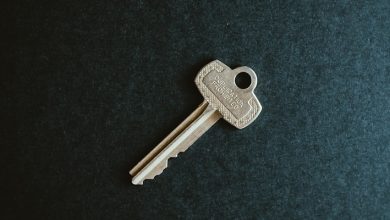The Risks of Using Public Wi-Fi to Access Exchange Accounts

- Understanding the dangers of connecting to public Wi-Fi networks
- Why using public Wi-Fi puts your exchange accounts at risk
- Tips for protecting your sensitive information while using public Wi-Fi
- The potential consequences of unauthorized access to your exchange accounts
- Security measures to consider when accessing exchange accounts on public Wi-Fi
- How to minimize the risks of using public Wi-Fi for sensitive transactions
Understanding the dangers of connecting to public Wi-Fi networks
Connecting to public Wi-Fi networks can expose your exchange accounts to various risks, such as data interception, malware attacks, and identity theft. When you connect to a public Wi-Fi network, your device’s data is transmitted over the airwaves, making it vulnerable to hackers who may intercept and steal your sensitive information.
Most public Wi-Fi networks do not have the same level of security as your home or office network, making them easy targets for cybercriminals. These networks are often unencrypted, which means that anyone with the right tools can eavesdrop on your online activities and potentially gain access to your exchange accounts.
Furthermore, cybercriminals can set up fake Wi-Fi networks with names similar to legitimate ones in public places to trick users into connecting to them. Once connected, hackers can launch man-in-the-middle attacks to intercept and manipulate the data being sent between your device and the network, putting your exchange accounts at risk.
To protect your sensitive information and exchange accounts, it is crucial to avoid connecting to public Wi-Fi networks when accessing them. Instead, use a virtual private network (VPN) to encrypt your connection and ensure that your data remains secure while browsing the internet on public networks.
Why using public Wi-Fi puts your exchange accounts at risk
Using public Wi-Fi can pose significant risks to your exchange accounts. When you connect to a public Wi-Fi network, you are essentially sharing the same network with many other users, making it easier for hackers to intercept your data. This means that any information you send or receive while connected to public Wi-Fi, such as login credentials or sensitive financial data, could be intercepted by cybercriminals.
Furthermore, public Wi-Fi networks are often unsecured, meaning that they lack the encryption necessary to protect your data from prying eyes. This makes it even easier for hackers to eavesdrop on your online activities and steal your information. In addition, cybercriminals can set up fake Wi-Fi hotspots in public places, posing as legitimate networks to trick users into connecting to them.
Once hackers have access to your exchange accounts, they can engage in various malicious activities, such as stealing your funds, manipulating your trades, or even locking you out of your account. These attacks can have serious financial consequences and can potentially jeopardize your entire investment portfolio.
Tips for protecting your sensitive information while using public Wi-Fi
When using public Wi-Fi, it is important to take precautions to protect your sensitive information from potential security threats. Here are some tips to help you stay safe:
- Avoid accessing sensitive accounts such as your exchange accounts while connected to public Wi-Fi networks.
- Consider using a virtual private network (VPN) to encrypt your internet connection and add an extra layer of security.
- Make sure the websites you visit are secure by looking for “https” in the URL and avoiding entering personal information on unsecured sites.
- Keep your device’s software and security patches up to date to protect against known vulnerabilities.
- Avoid sharing personal or sensitive information over public Wi-Fi networks, as they can be easily intercepted by hackers.
The potential consequences of unauthorized access to your exchange accounts
Unauthorized access to your exchange accounts can have severe consequences that may compromise your financial security and personal information. When using public Wi-Fi to access your accounts, you are putting yourself at risk of being hacked by cybercriminals who may steal your login credentials, banking details, and other sensitive data. This can lead to identity theft, financial loss, and even reputational damage.
In addition, unauthorized access to your exchange accounts can result in unauthorized transactions being made without your knowledge or consent. Hackers can manipulate your account settings, change your passwords, and withdraw funds without leaving any trace. This can not only disrupt your financial stability but also tarnish your reputation with the exchange platform and other users.
Moreover, if cybercriminals gain access to your exchange accounts, they may use your personal information to engage in fraudulent activities, such as money laundering or illegal transactions. This can attract unwanted attention from law enforcement agencies, leading to investigations, legal consequences, and potential criminal charges against you. It is essential to protect your exchange accounts from unauthorized access to prevent such dire consequences.
Overall, the potential risks of unauthorized access to your exchange accounts when using public Wi-Fi are significant and should not be taken lightly. It is crucial to take proactive measures to secure your accounts, such as using secure networks, enabling two-factor authentication, and regularly monitoring your account activity. By safeguarding your exchange accounts, you can minimize the risks of unauthorized access and protect your financial well-being and personal information.
Security measures to consider when accessing exchange accounts on public Wi-Fi
When accessing exchange accounts on public Wi-Fi, it is crucial to prioritize security measures to prevent potential risks. One key precaution is to utilize a virtual private network (VPN) to encrypt your connection and safeguard your data from potential cyber threats. Additionally, ensure that the exchange platform you are using has multi-factor authentication enabled to add an extra layer of protection. Avoid accessing sensitive information or making financial transactions while connected to public Wi-Fi to minimize the risk of unauthorized access to your account. It is also advisable to regularly update your passwords and log out of your account after each session. By taking these security measures, you can mitigate the vulnerabilities associated with using public Wi-Fi for accessing exchange accounts.
How to minimize the risks of using public Wi-Fi for sensitive transactions
When using public Wi-Fi for sensitive transactions, it is important to take precautions to minimize the risks involved. Here are some steps you can take to protect your personal information:
- Avoid accessing your exchange accounts or conducting financial transactions on public Wi-Fi networks.
- Use a virtual private network (VPN) to encrypt your internet connection and add an extra layer of security.
- Make sure your device’s software is up to date to protect against known vulnerabilities.
- Disable file sharing and enable firewall settings on your device to prevent unauthorized access.
Additionally, consider using two-factor authentication for an added layer of security when accessing your exchange accounts. By following these guidelines, you can help reduce the risks associated with using public Wi-Fi for sensitive transactions.



